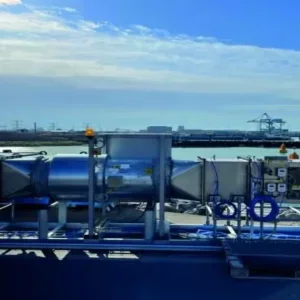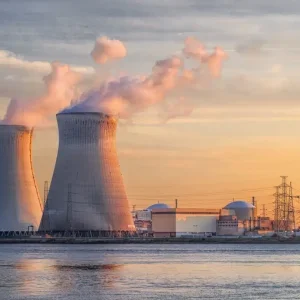The UK’s Commonwealth Development Corporation (CDC) contributes to economic development by investing in and supporting enterprises which are commercially viable, economically sound and which meet international social and environmental standards. CDC’s objective is to create and develop sustainable businesses in emerging economies, achieving commercial returns for its shareholders and implementing ethical best practice.
In the past CDC invested equity and provided debt to private and public enterprises, but our efforts are now concentrated in equity and quasi-equity investment with partners in private sector ventures, such as independent power producers (IPPs). As such, CDC’s emphasis has shifted to risk-sharing and returns. Where possible we encourage ventures to obtain listings in the local stock exchange, to stimulate financial markets and promote new enterprise.
Unlike many other investors in emerging economies, CDC does invest at the development stage, sharing risk with strong partners. Our investment is not tied to other investment, or supplies of goods or services from specific geographical areas.
With over US$2.6B invested in over 400 businesses in 54 countries, CDC can invest US$1-50M in any single enterprise. It is currently owned by the British Government, and is responsible to the Department for International Development, although there are plans for it to be privatised in the future. Our primary focus is on countries in Africa, south Asia, east Asia/Pacific and the Caribbean/Latin America. Headquartered in London, UK, we operate through 30 international offices and 16 country and regional equity funds. Our portfolio is divided between five main sectors: •Agribusiness (28%).
•Infrastructure (25%).
•Manufacturing and commerce (21%)
•Financial markets — venture capital funds, financial intermediaries (21%).
•Minerals, oil and gas (5%).
The investment is spread fairly equally across our four regions, giving us considerable experience of successfully closing deals in ‘difficult’ markets.
Electricity has always been one of the largest sectors in CDC’s portfolio. For example, CDC was a founding investor in the Kariba dam on the Zambezi river. Power investment now accounts for US$600M, with new investments totalling another US$400M under consideration.
CDC has helped finance local utilities as they develop their infrastructure. Successful schemes include several hydroelectric projects such as Kapichira, a 2 x 32MW hydroelectric scheme in Malawi, the Ventanas Garita hydroelectric scheme on the Virilla River in Costa Rica (including construction of the dam, ancillary engineering works and installation of transmission lines to San José) and a plant in Belize. With a change of focus in recent years and an eye to increasing investment in the private sector, CDC helped finance the 16MW run-of-river private hydro plant near Ciudad Quesada in Costa Rica.
Our strategy in the power sector is to have a diversified portfolio in terms of geographical location, as well as engine technologies and fuel, and hydro power plays a very important role in this. Not only is the ‘fuel’ produced locally and is cheap, but it also has the environmental benefit of not burning fossil fuels and using a renewable resource. Obviously there are times when hydro plants will present environmental challenges but CDC, as an ethical investor, would want to tackle such challenges upfront. We will ensure that environmental damage is minimised, in accordance with World Bank standards.
The traditional method of financing infrastructure projects in developing countries is for a government agency to provide senior debt for power projects and, frequently, a 5-10% equity stake in the project is also required. The tenor of such loans can be as long as 10-12 years, with no principal repayment during construction. The interest will depend on the perceived country and project risks and will be fixed or floating, depending on the policy of the organisation involved. It is important to note that since power developers frequently work through ‘shell’ companies with no recourse to the main sponsors, such loans are granted purely on the security of the expected cash flow during operation. Analysis of the robustness of each project is therefore paramount to the lending institution(s). This analysis can take considerable time and often requires input from a variety of legal, insurance, environmental and technical consultants.
CDC’s approach is different. Rather than concentrating its efforts in providing senior debt to projects, it has focused on the provision of equity and quasi-equity forms of finances in IPPs. The shift from debt provider to primarily being an equity provider has also meant a change in behaviour and alignment of interests with power developers: nowadays we aim to work alongside developers as one of the initial promoters, to ensure that projects reach financial closure successfully.
As one of the developers CDC will obviously share development risk up to financial close and become actively involved in all aspects of the negotiations. However, many organisations can successfully develop projects on their own, so what is the advantage of partnering with an equity investor rather than another power developer? In our case, we can offer extensive experience of power and hydro power projects. For example we are single-handedly developing a run-of-river IPP in central Africa as well as similar projects in central America in conjunction with other developers. Given CDC’s knowledge of the needs of financial institutions in non-recourse financing, it is very well placed to structure or contribute to the structuring of IPPs from the onset of the venture. It can also support the main developer in structuring the project to facilitate the provision of finance. In many of the territories where we operate we have up to fifty years of investment experience in the country. We know the local environment, can play the role of local partner, or, if a local partner is already available, support local developments.
Related Articles
Spotlight on… finance






